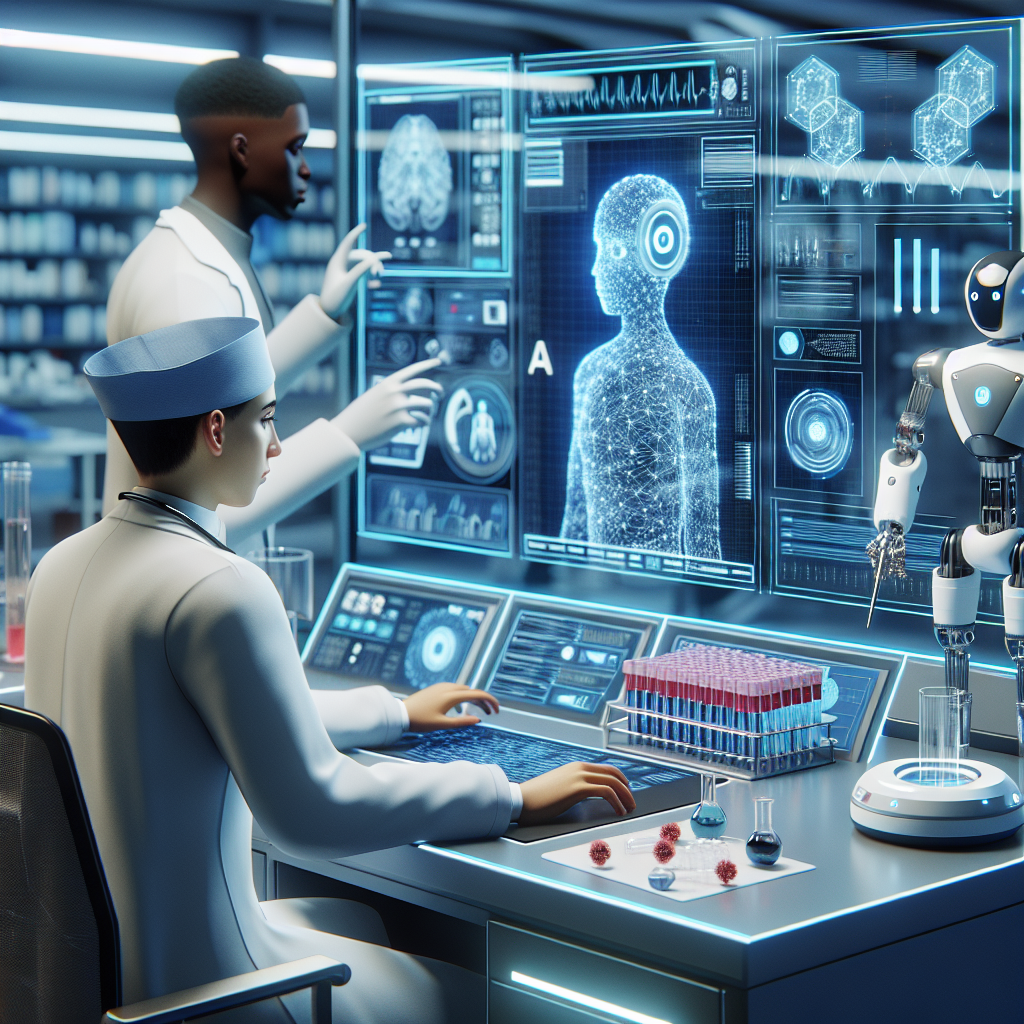How to Use AI for Medical Diagnosis: Common Questions
Hey there! Curious about how AI is making waves in the medical field? You’re in the right place. Let’s dive into some common questions and uncover how AI is transforming medical diagnosis in a friendly and informative chat!
What Role Does AI Play in Medical Diagnosis?
Great question! AI in medical diagnosis involves the use of advanced algorithms and machine learning techniques to analyze medical data.
- Image Analysis: AI can examine medical images (like X-rays and MRIs) to detect abnormalities.
- Predictive Analytics: By analyzing patient history and symptoms, AI can predict potential health issues.
- Decision Support: AI systems can assist doctors by providing diagnostic suggestions based on data patterns.
Think of AI as a super-powered assistant that helps doctors make more accurate and timely diagnoses.
How Accurate is AI in Diagnosis?
Accuracy can vary, but AI is becoming increasingly reliable. In some studies, AI algorithms have matched or even surpassed human experts in diagnostic accuracy!
- Training Data: AI systems are trained on vast amounts of medical data, which helps them learn and improve.
- Continuous Learning: These systems constantly update their knowledge base, keeping up with the latest medical research.
So while AI isn’t perfect, it’s an extremely valuable tool that continues to evolve and enhance diagnostic processes.
How is AI Used in Different Medical Fields?
AI’s applications span various medical disciplines. Here are a few examples:
- Radiology: AI assists in the interpretation of imaging studies to detect tumors, fractures, and other anomalies.
- Pathology: By analyzing tissue samples, AI can identify cancerous cells and other pathological conditions.
- Primary Care: AI-based chatbots can triage patients by asking symptom-related questions and suggesting possible conditions.
- Cardiology: AI helps in analyzing ECG results to detect heart diseases early.
These are just a few ways AI is being used. Its versatility makes it a game-changer in many healthcare areas.
What Are Some Challenges of Using AI in Medical Diagnosis?
Despite its potential, AI faces some hurdles:
- Data Privacy: Ensuring patient data is secure and confidential is paramount.
- Bias: AI systems can reflect biases present in their training data, which can affect diagnosis accuracy.
- Integration: Operationalizing AI in everyday clinical practice requires significant infrastructure and training.
- Regulation: Compliance with healthcare regulations, like HIPAA, is vital to safeguard patient data.
Addressing these challenges is essential to fully realize the benefits of AI in healthcare.
Is AI Replacing Doctors?
Not at all! Instead of replacing doctors, AI serves as a powerful tool that augments their capabilities.
- It assists doctors by providing secondary opinions and highlighting areas of concern.
- It reduces workload by automating routine tasks, allowing doctors to focus on more complex cases.
AI and doctors working together create a complementary and efficient healthcare delivery system.
Conclusion
There you have it! AI in medical diagnosis is a fascinating and rapidly evolving field that holds immense promise. By harnessing the power of AI, we can enhance diagnostic accuracy, improve patient outcomes, and pave the way for a healthier future.
If you have more questions, feel free to reach out. Stay curious and healthy!
